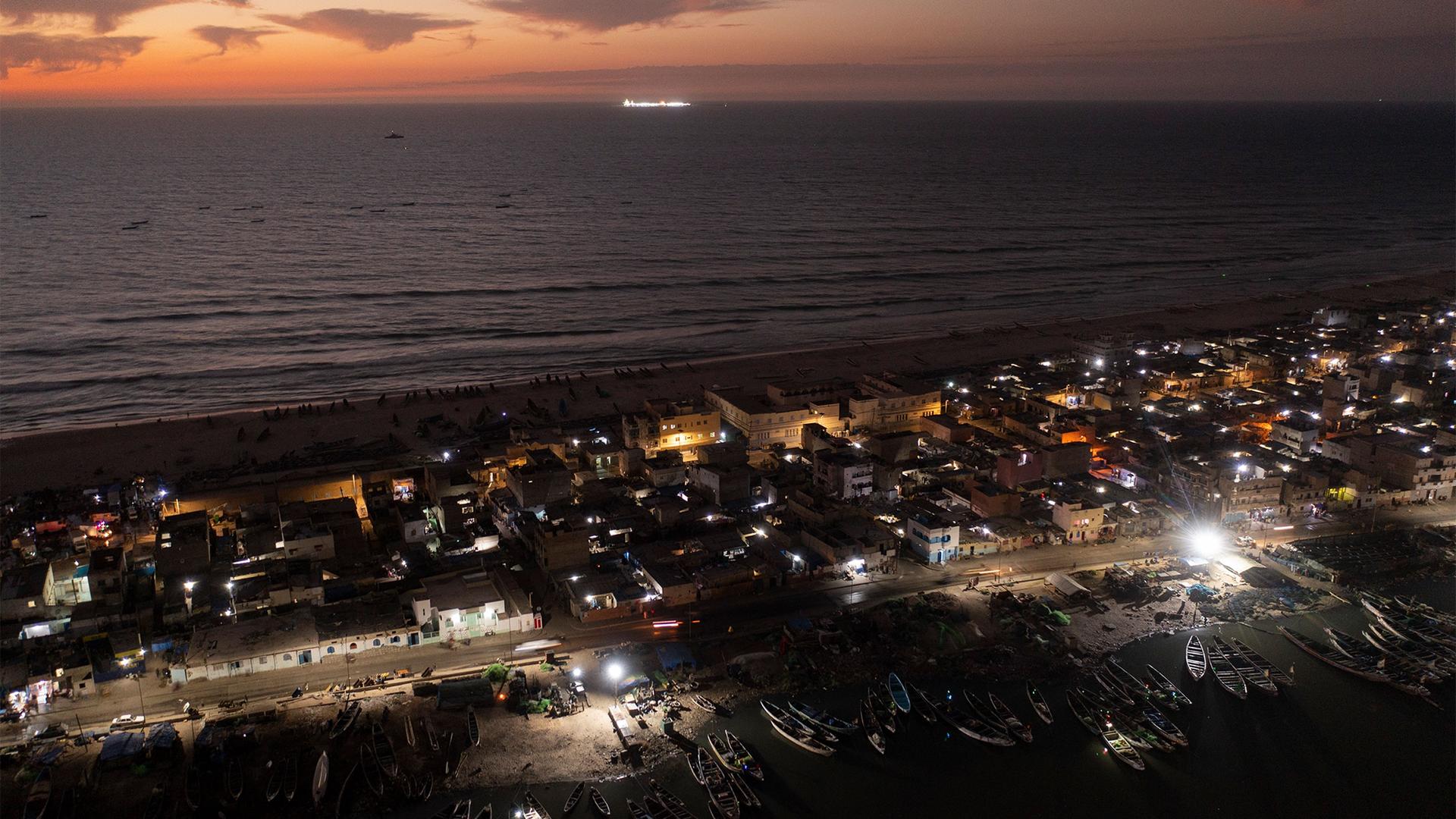Between 2014 and 2017, Senegal and Mauritania found world-class deposits of natural gas along their Atlantic shores. It was one of the largest discoveries of natural gas in the last two decades. A plan to export that gas abroad has brought hope for the two nations’ economies.
“I want us to profit from the gas,” said Aguibou Ba, executive director of Senegal’s National Institute for Oil and Gas. “Because as soon as we start extracting, I expect the electricity prices of fuel — even food prices — will drop and become affordable for us.”
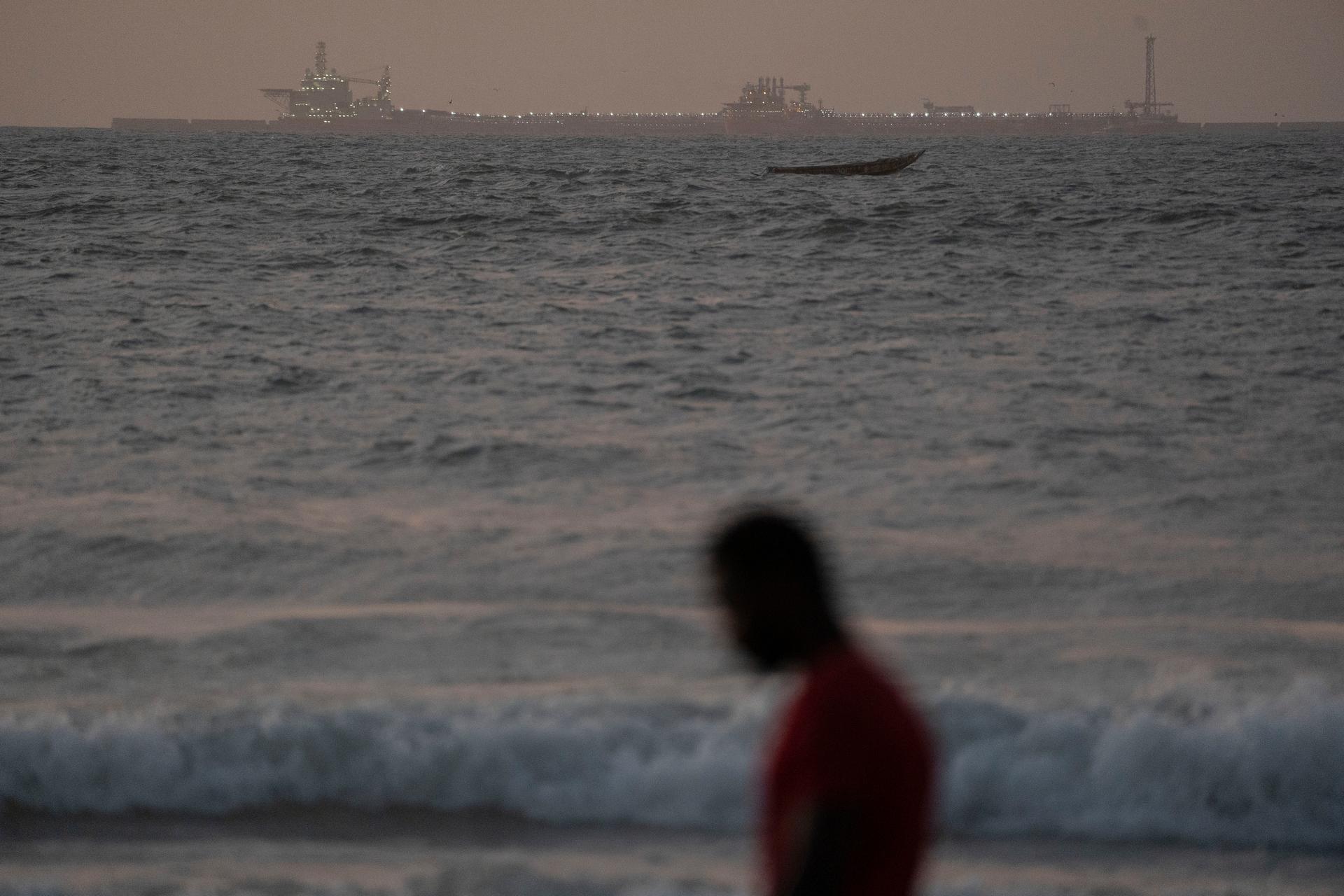
The joint project with Senegal and Mauritania involves two energy giants: BP and Kosmos Energy. The first phase of the project is almost finished, which means it could start producing and exporting liquified natural gas as soon as this fall.
Germany and Poland have already signed deals with Senegal’s government.
Experts say natural gas won’t transform Senegal into a rich country overnight, but it could bring significant economic growth.
“It might help the government to achieve universal access to electricity by 2025,” said William Davis, an economic analyst with the Natural Resource Governance Institute in the United Kingdom. “And so, an individual person might get access to electricity that they never had before, as a result of this project.”
But many locals are skeptical about any promises of a more prosperous future from natural gas.
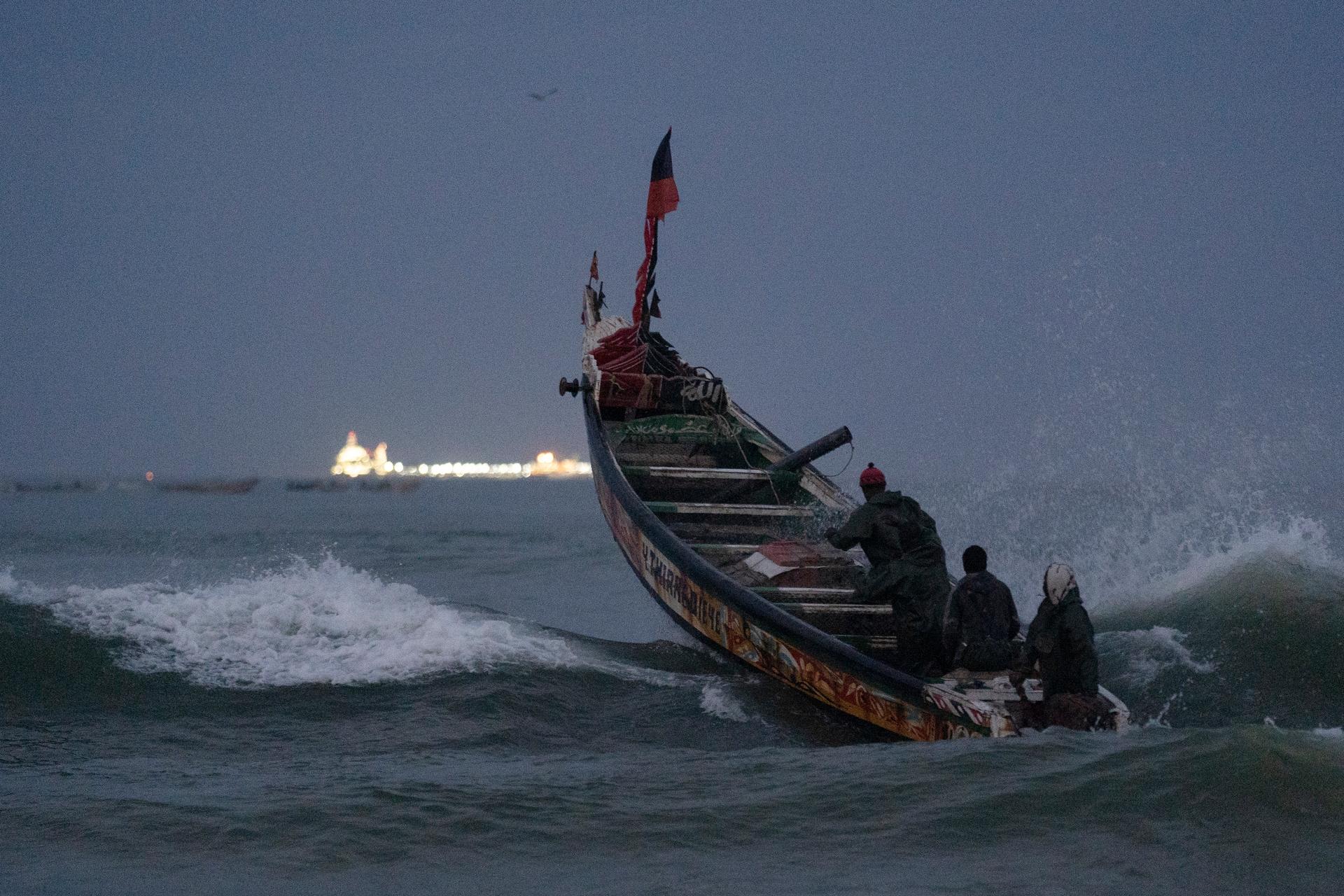
In the coastal city of Saint-Louis, in northern Senegal, there is an ancient, vibrant fishing village that’s close to the offshore platform where the natural gas is being extracted.
On their way out to the sea, fishermen pass right by the drilling rig.
“We used to have a lot of fish at sea and now we don’t have that anymore.”
Pa Badiane, a local fisherman, said this natural gas project has only brought unemployment and poverty to the community. “We used to have a lot of fish at sea and now we don’t have that anymore,” he said.
To make way for the drilling of natural gas, access to waters teeming with fish has been cut off, and the fishing boats are not allowed to go into certain areas. “The coast guards pass by every day, you’re not allowed to get anywhere nearby,” Badiane said. “And if you do, you will be attacked. Very recently, a pirogue attempted to get nearby, and the marines just cut the pirogue in half. They just hit it.”
A representative of the local government conceded that the natural gas project does have downsides for local fishing communities.
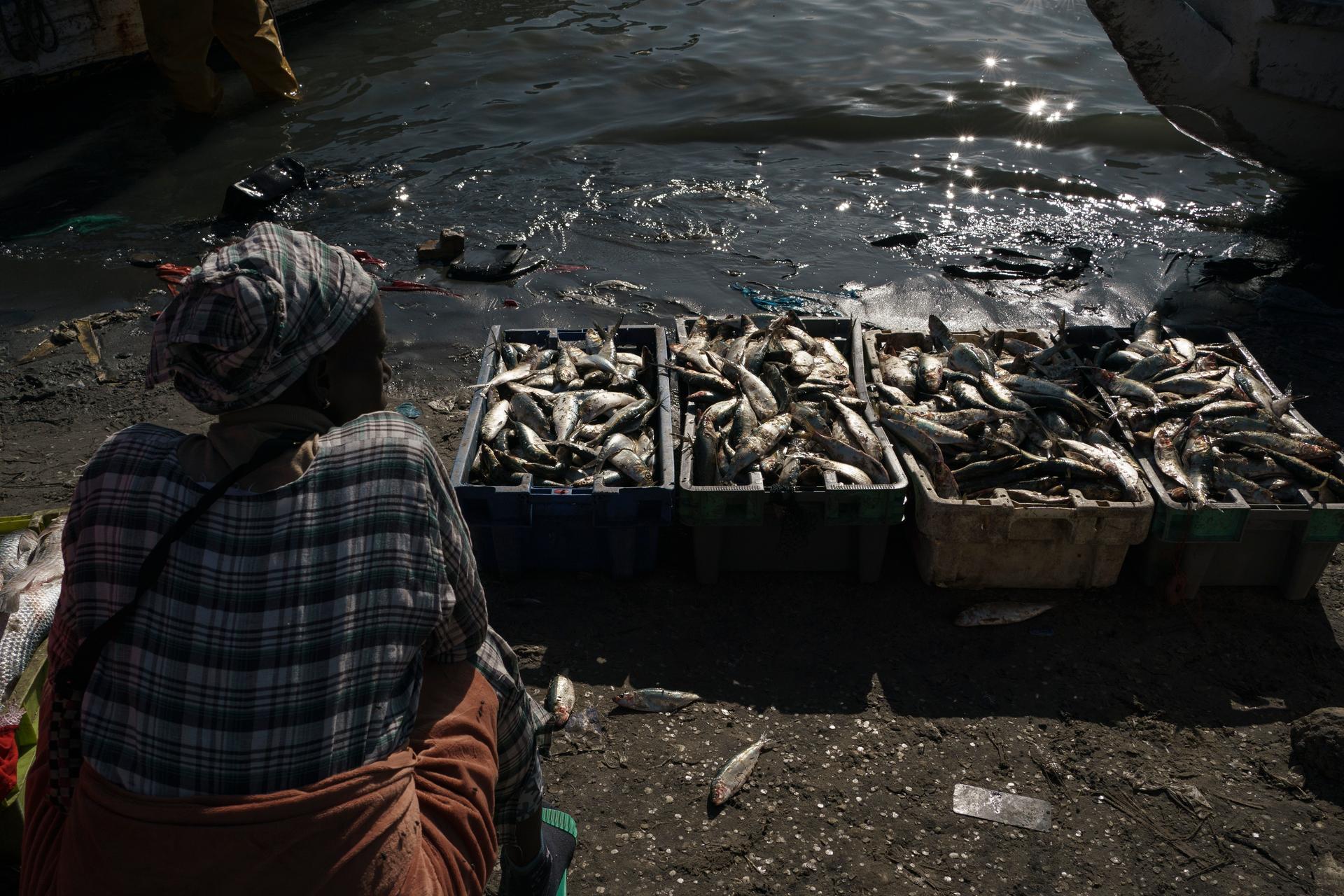
“Authorities have to think about gas leaks in the area that can affect the fish population,” said Boun Daouda Soumaré, director of the Communal Development Agency of Saint-Louis.
Soumaré added that people should be patient, as jobs and other benefits from the gas deal will materialize in the future.
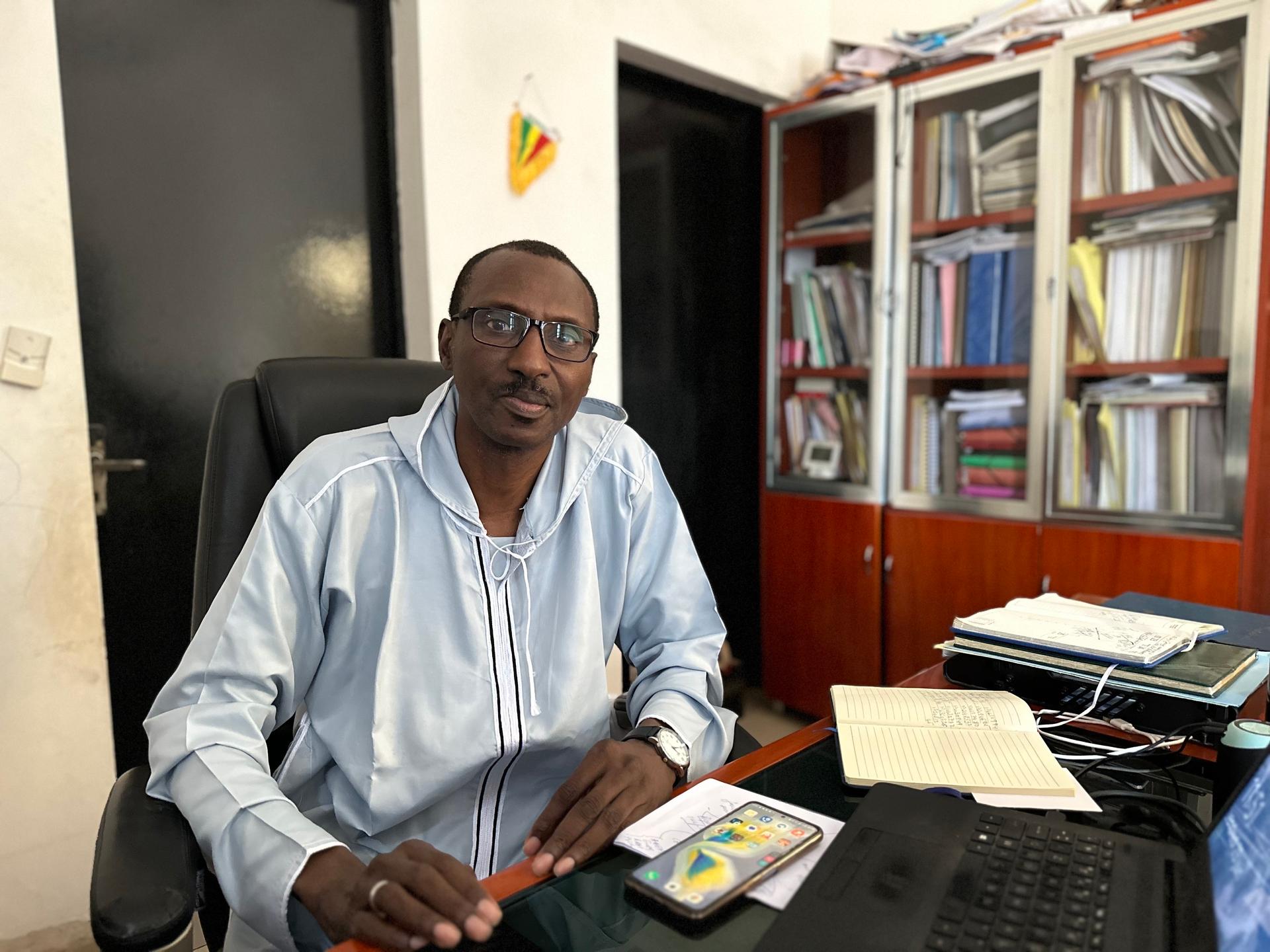
But Pa Badiane, the local fisherman, said he doesn’t trust the government, “because we have the feeling that, given all the parties involved, Senegal will not have much on its own. And if there is, it might be taken for other purposes,” he added.
This lack of trust is common in many African countries, as Will Davis explained. “Transparency and accountability [are] key factors in making sure that the revenues are used well for the benefit of the population rather than the political priorities of the government of the day, or even the personal priorities of politicians who are in power.”
The city of Saint-Louis is also grappling with a rise in sea level, which has already displaced thousands of people.
Fishermen interviewed for this story said the natural gas project — combined with the impact of climate change — might be the end of their way of life.
Officials from the two gas companies involved in the project turned down interview requests for this story.
Journalist Borso Tall helped produce this story.
Related: An important fishing village in Senegal is on the verge of disappearing as sea levels rise
Our coverage reaches millions each week, but only a small fraction of listeners contribute to sustain our program. We still need 224 more people to donate $100 or $10/monthly to unlock our $67,000 match. Will you help us get there today?
